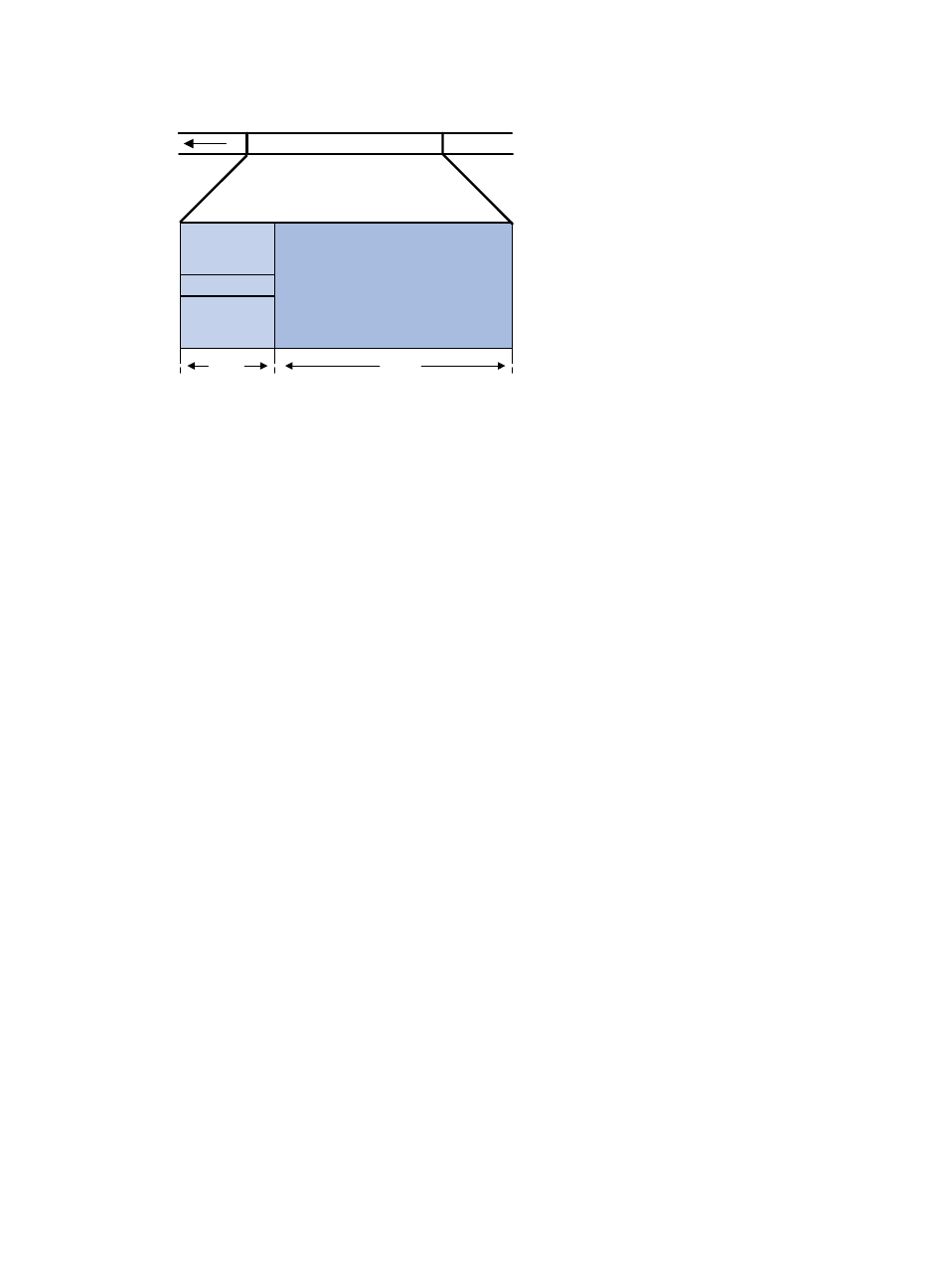Terms, Multiplexing e1/t1/e3/t3 channels to form stm-1 – H3C Technologies H3C SR8800 User Manual
Page 36

29
Figure 4 STM-N frame structure
STM-N is a rectangle-block frame structure of 9 rows x 270 x N columns, where the N in STM-N equals
the N columns. N takes the value 1, 4, 16, and so on, indicating the number of STM-1 signals that form
SDH signal.
The STM-N frame structure consists of three parts: the section overhead (SOH), which includes the
regenerator section overhead (RSOH) and the multiplex section overhead (MSOH); the administration
unit pointer (AU-PTR); and payload. AU-PTR is the pointer that indicates the location of the first byte of the
payload in an STM-N frame so that the receiving end can correctly extract the payload.
Terms
•
Multiplex unit—A basic SDH multiplex unit includes multiple containers (C-n), virtual containers
(VC-n), tributary units (TU-n), tributary unit groups (TUG-n), administrative units (AU-n) and
administrative unit groups (AUG-n), where n is the hierarchical sequence number of unit level.
•
Container—Information structure unit that carries service signals at different rates. G.709 defines
the criteria for five standard containers: C-11, C-12, C-2, C-3 and C-4.
•
Virtual container (VC)—Information structure unit supporting channel layer connection of SDH. It
terminates an SDH channel. VC is divided into lower-order and higher-order VCs. VC-4 and VC-3
in AU-3 are higher-order virtual containers.
•
Tributary unit (TU) and tributary unit group (TUG)—TU is the information structure that provides
adaptation between higher-order and lower-order channel layers. TUG is a set of one or more TUs
whose location is fixed in higher-order VC payload.
•
Administrative unit (AU) and administrative unit group (AUG)—AU is the information structure that
provides adaptation between higher-order channel layer and multiplex section layer. AUG is a set
of one or more AUs whose locations are fixed in the payload of STM-N.
Multiplexing E1/T1/E3/T3 channels to form STM-1
In the SDH multiplexing recommended by G.709, more than one path is available for a valid payload
to be multiplexed to form STM-N. The following figures illustrate the multiplexing processes from E1, T1,
E3, and T3 to STM-1.
Regenerator
Section
Overhead
Payload
9×N
1
9×270×N (bytes)
AU-PTR
Multiplex
Section
Overhead
261×N
2
3
5
4
6
8
7
9
